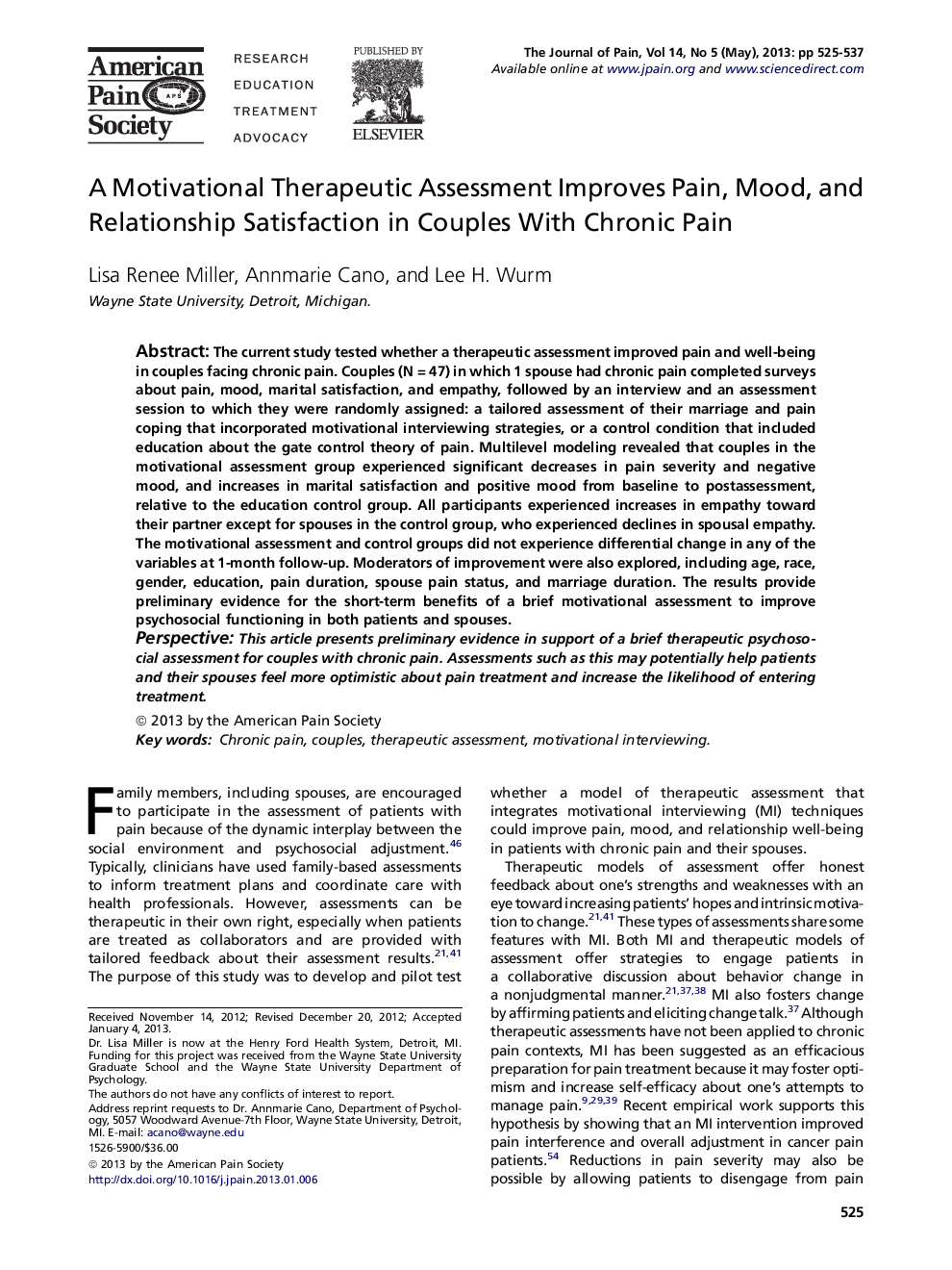| Article ID | Journal | Published Year | Pages | File Type |
|---|---|---|---|---|
| 2729111 | The Journal of Pain | 2013 | 13 Pages |
The current study tested whether a therapeutic assessment improved pain and well-being in couples facing chronic pain. Couples (N = 47) in which 1 spouse had chronic pain completed surveys about pain, mood, marital satisfaction, and empathy, followed by an interview and an assessment session to which they were randomly assigned: a tailored assessment of their marriage and pain coping that incorporated motivational interviewing strategies, or a control condition that included education about the gate control theory of pain. Multilevel modeling revealed that couples in the motivational assessment group experienced significant decreases in pain severity and negative mood, and increases in marital satisfaction and positive mood from baseline to postassessment, relative to the education control group. All participants experienced increases in empathy toward their partner except for spouses in the control group, who experienced declines in spousal empathy. The motivational assessment and control groups did not experience differential change in any of the variables at 1-month follow-up. Moderators of improvement were also explored, including age, race, gender, education, pain duration, spouse pain status, and marriage duration. The results provide preliminary evidence for the short-term benefits of a brief motivational assessment to improve psychosocial functioning in both patients and spouses.PerspectiveThis article presents preliminary evidence in support of a brief therapeutic psychosocial assessment for couples with chronic pain. Assessments such as this may potentially help patients and their spouses feel more optimistic about pain treatment and increase the likelihood of entering treatment.
